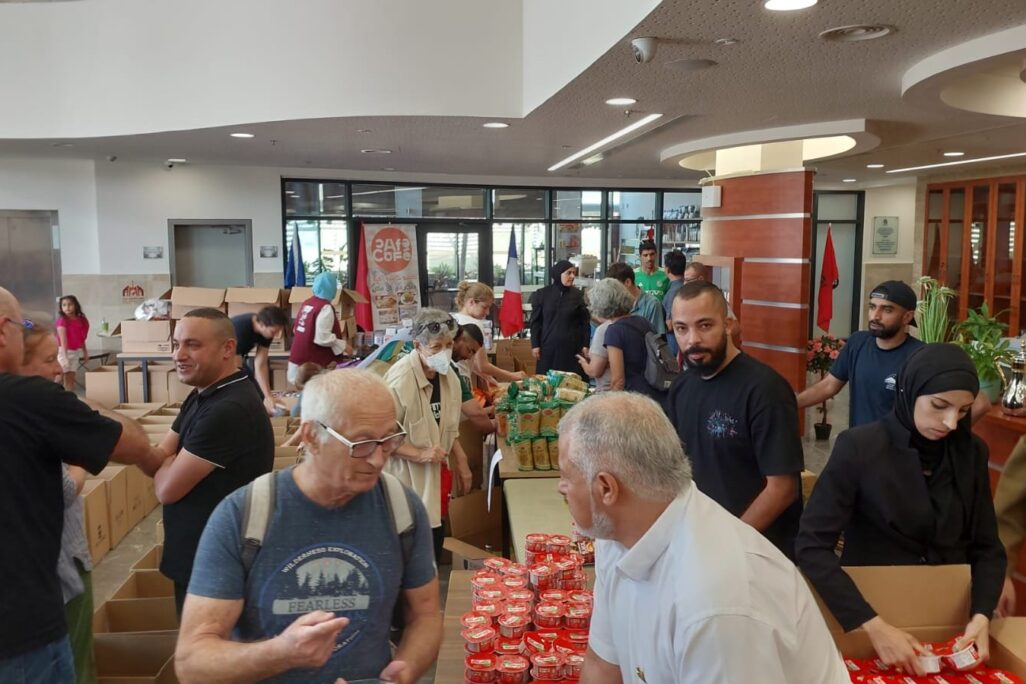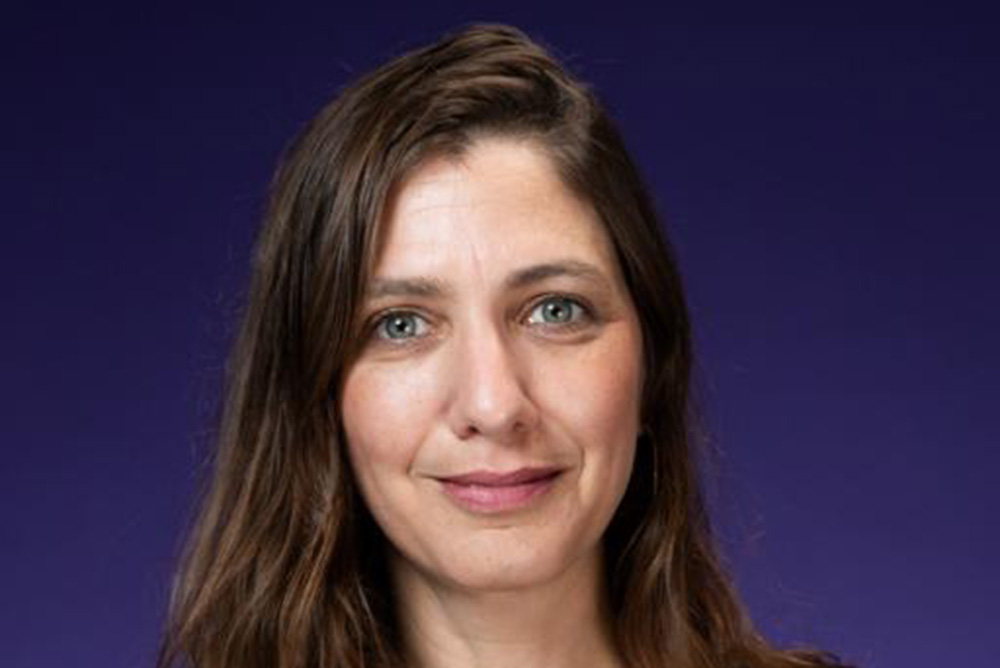
"If the country doesn't come to its senses, there will be a humanitarian disaster," claimed Adi Engert, one of the organizers of an ongoing campaign in the central Israeli city of Kfar Saba to provide aid for residents of unrecognized Bedouin villages in the Negev desert who face particular hardship during the war.
"On Saturday evening we realized that we had to deal with this situation," said Engert, a social worker by profession, who is running for the Kfar Saba city council on behalf of the Meretz party.
"All normal activity has stopped. Meretz's headquarters has become a center for collecting donations for the residents of the Gaza Envelope and the soldiers.
"On Tuesday I spoke with my friend Esti Shochat Rosenfeld, who I worked with in transporting Bedouins to the polling stations during the last election campaign, and I asked her if she knew what their situation was now,” she continued. "She spoke to her contact who said the situation is very bad, the people are starving."

Engert knows the reality of life in the unrecognized villages.
"There are about 300,000 people there, with 200,000 of them below the poverty line,” she explained. “There is no protection there, they are like sitting ducks. This is a population that works in agriculture for an hourly wage. They aren’t working now – they are afraid of harassment."
Engert and Rosenfeld chose to focus on food aid. Engert, one of the founders of a bilingual school in Kfar Saba, put out a call on social media, and people joined the initiative.
"Donations of dry food have arrived from citizens of Israel, Jews and Arabs, from Haifa, from Jerusalem, from Kfar Saba and recently also from Lod and Ramla," Engert said, adding that members of the 'Standing Together' movement for Jewish-Arab coexistence also joined the efforts.
"We have no state or organizational infrastructure," she emphasized. "It is based on the goodwill of people and familiarity between the people. One of the volunteers opened Paybox and became the treasurer. [Our project] relies on the human spirit."
*שותפים לגורל – שותפים לחמ"ל*
לאחר דחייה קלה היום מתנהל מבצע חלוקת סלי מזון לכ-400 משפחות נזקקות ונפגעות מלחמה יהודיות ובדואיות – מרהט והכפרים הלא מוכרים ומיישובי העוטף. בשעה זו מתנדבים עשרות אנשים במתנ"ס ברהט באריזת החבילות.
בהודעת החמ"ל נמסר כי הוא "עובד על טהרת שיתוף > pic.twitter.com/vcLsdGkUVN
— המועצה האזורית לכפרים הלא מוכרים בנגב (@rcuvnegev) October 19, 2023
At the donation center in Kfar Saba, the collected food is packed in packages per family and transported to the Negev in private cars. The packages arrive at the emergency center in Hura, which distributes the food among the unrecognized villages.
"There are many volunteers there – Desert Star, AJEEC (Arab-Jewish Center for Empowerment, Equality and Cooperation), the Council for Unrecognized Villages, and people like me without an organization. They know the area and know what the needs are," Engert said.
Engert knows very well that her project will not last forever.
"Now everyone is opening their wallets and putting down their own names [for donations]," she said. "Everyone is mobilized now, the generosity is endless. People are giving everything they have and sometimes what they don’t have. But they are running out of money."
Engert remembers one woman who brought a kilogram of rice, saying that she wouldn’t go hungry without it.
"This is what people do, and it's more than I imagined," she said.
When Engert is asked about the state’s ability to respond, she responds with a bitter smile.
"There is no state. We have been holding on for two weeks. How much longer can we hold on? A month?" she said. "Homeless people, foreign workers and asylum seekers – everyone is starving now. There will be a humanitarian disaster.
"There is no state. We knew it once, but its traces have been lost. I will continue as long as I can," Engert added.
Engert demands a comprehensive and immediate solution.
"The Ministry of Welfare should distribute food without checking for eligibility and without identity cards," she said. "The state should be showering everyone with money – especially on vulnerable populations like the evacuees from the Gaza Envelope. No one has made an orderly decision to evacuate them. They are refugees in their own country, internal refugees. The state needs to understand that there are tens of thousands of displaced people here, and to act accordingly."
As a social worker, Engert has witnessed the power of the state and the weakness of the public welfare service.
"The state could come in directly like I did. A state is made up of people. Even though the public welfare system has been starved, there are also personal decisions determining the reality," she said.
Engert cites the rapid organizing of the Union of Social Workers' on the first day of the war.
"Did someone prevent the Deputy Director of the Ministry of Welfare from organizing something like that?" she wonders.
"You can't take away the personal responsibility of the middle and senior ranks in the civil service. A lack of personnel was discovered," she continued. "It's a societal failure, not just a security one. Just as the security establishment has to be held accountable, so too do the welfare institutions."
This article was translated from Hebrew by Lily Sieradzki.






